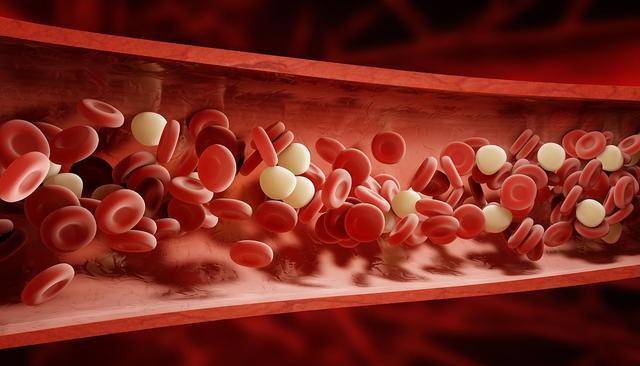Ms. Xu is a 45-year-old homemaker who recently visited the hospital due to feeling unwell. Upon examination, it was found that she was experiencing symptoms of high blood lipids. When asked about her dietary habits, Ms. Xu mentioned that she eats a lot of potatoes every day, believing them to be a nutritious and healthful food.
The doctor informed Ms. Xu that while potatoes are rich in starch and fiber, they also contain high levels of carbohydrates and calories. Excessive consumption of potatoes can lead to elevated blood sugar and triglyceride levels, thereby affecting the normal metabolism of blood lipids. The doctor advised Ms. Xu to reduce her potato intake and increase the consumption of other vegetables and fruits in her daily diet.
However, Ms. Xu did not heed the doctor’s advice and continued to consume large amounts of potatoes daily. A month later, she suddenly fainted at home and was taken to the hospital, where serious issues with her heart and liver were discovered. Upon examination, it was found that Ms. Xu’s blood lipid levels had reached a very dangerous level, with excessive potato consumption being one of the significant factors contributing to her illness.
Definition and Hazards of High Blood Lipids
High blood lipids refer to elevated levels of lipid substances such as cholesterol, triglycerides, and low-density lipoprotein (LDL) in the blood. Cholesterol is a lipid that is essential to the body, but excessive intake increases the risk of blood vessel blockages. Triglycerides are a major form of energy storage in the body; however, excessive intake can lead to fat accumulation, affecting cardiovascular and metabolic health. LDL cholesterol, known as “bad cholesterol,” in excess can deposit on blood vessel walls, leading to atherosclerosis and the occurrence of cardiovascular diseases such as hypertension, coronary heart disease, and stroke.
High blood lipids are a common metabolic disorder with most patients being asymptomatic and easily overlooked. If not controlled long-term, high blood lipids can lead to the development of cardiovascular diseases, obesity, diabetes, fatty liver, and other conditions. Cardiovascular diseases, especially, are among the severe consequences of high blood lipids and can pose a significant threat to individuals’ health.
The importance of preventing and controlling high blood lipids is evident. It requires various measures, including maintaining a balanced diet, adopting regular lifestyle habits, necessary medication, etc., to keep blood lipid levels within a normal range and reduce the risk of cardiovascular diseases.
Nutritional Value of Potatoes and their Relation to High Blood Lipids
Potatoes are a common starchy vegetable with high nutritional value, containing abundant carbohydrates, dietary fiber, vitamin C, vitamin B6, potassium, and other nutrients. Carbohydrates are a vital energy source for the body, while dietary fiber aids in promoting intestinal motility, regulating blood sugar, lipid, and cholesterol levels, and preventing conditions like constipation. Vitamin C in potatoes enhances immune function, vitamin B6 regulates protein metabolism and hemoglobin synthesis, and potassium helps regulate fluid balance and blood pressure.
Despite their nutritional content, there is indeed a certain relationship between potatoes and high blood lipids for patients with the condition. Potatoes have high carbohydrate content, including starch and glucose, leading to elevated blood sugar levels, triggering insulin secretion, and increasing triglyceride levels in the body.
Triglycerides, a type of blood lipid, when consumed excessively, can cause elevated blood lipids, increasing the risk of cardiovascular diseases. Potatoes also have relatively high calorie content, which can result in excess energy intake, weight gain, and the occurrence of metabolic disorders like high blood lipids.
Patients with high blood lipids need to control their potato intake, especially during cooking where they should avoid using excessive oil and salt. They can opt for low-fat, low-salt cooking methods like steaming, boiling, or baking. In their regular diet, increasing the consumption of vegetables and fruits, reducing high sugar and high-fat foods, along with incorporating exercise and medication therapies are essential to control the progression of high blood lipids.
Other Plant-Based Foods to Consume in Moderation
In addition to potatoes, there are other plant-based foods that patients with high blood lipids should consume in moderation or avoid, including coconut oil and plant-based milk.
Coconut oil is a plant-based oil with a high content of saturated fatty acids, reaching approximately 90%. Saturated fatty acids can increase LDL cholesterol levels in the body, leading to elevated blood lipids. While coconut oil has some antibacterial, antiviral, and antioxidant properties, due to its high saturation, patients with high blood lipids are advised to consume it sparingly or avoid it.
Plant-based milk, made from ingredients like legumes, nuts, grains, such as soy milk, almond milk, oat milk, etc., although lower in fat content compared to animal milk, still contain carbohydrates and fats. Patients with high blood lipids need to be cautious and control their intake of plant-based milk to avoid excessive consumption of carbohydrates and fats, which could raise blood sugar and lipid levels.
Patients with high blood lipids should also control their intake of high-cholesterol and high-saturated fatty acid foods such as red meat, liver, fatty meat, egg yolks, cream, cheese, to prevent adverse impacts on blood lipid levels. They also need to regulate alcohol consumption, smoking, adopt regular physical activity, and manage a balanced diet to maintain good blood lipid levels and cardiovascular health.


